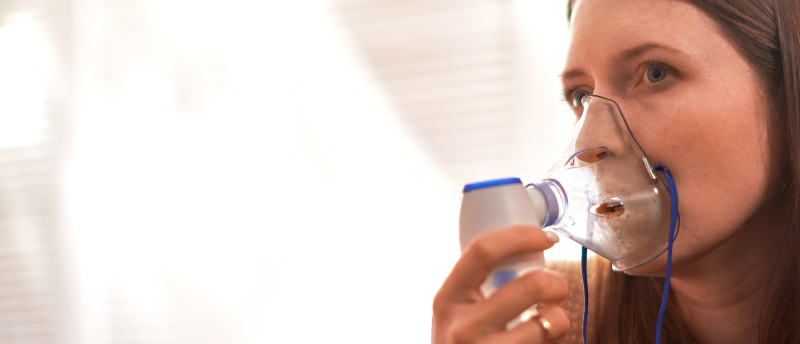This post was contributed to ConsumerSafety.org by Jennifer MacCormack.
FDA Finds Bacteria In Unvetted Cancer Drug

In January 2017, the U.S. Food & Drug Administration (FDA) released a public warning to consumers. The warning addressed the bacterial contamination in a "cancer treatment" known as PNC-27.
Through testing, the FDA found the inhalation solution contained bacteria called Variovorax paradoxus. This bacteria can cause serious infections in people with weakened immune systems.
Bacterial Contamination Lead to Lawsuits Over a Popular Medical DeviceAs a result, the agency recommended patients using PNC-27 to consult their physicians about the related health risks. In some cases, the health consequences of this bacterial contamination require antibiotic treatment. The agency also encouraged patients to consider all their treatment options before using unregulated drugs.
What Is PNC-27?
PNC-27 is a peptide that has shown some promise in preliminary in-vitro studies as an anti-cancer drug. However, it has not yet been evaluated by the FDA for its safety and efficacy. It has not been approved as a treatment for any sort of cancer.
On the product's website, the developers of PNC-27 claim that the FDA approval process is too expensive and complex. Thus, no pharmaceutical company in America has yet decided to pursue official approval on this medication. Instead, patients can opt to leave the country: For example, patients can fly to Mexico to undergo their treatment.
PNC-27 was featured in a popular TEDx talk, giving the drug some momentum online. The drug's website is easy to find. It encourages patients to sign up to be connected with foreign doctors for treatment. These treatments can take the form of suppositories, inhaled nebulized solutions or IV solutions.
It is extremely important to understand that PNC-27 clinical trials have not shown the drug to be safe and effective. Given the situation, the question becomes: Is PNC-27 a legitimate cancer drug? Or is it just another in a long line of quack medicines, preying on the hopes and fears of the public?
Miracle Cures and Avoiding Government Regulations
Unapproved miracle cures aren't new, but regulating them is a relatively new idea. The FDA requires pre-market review of all new drugs and bans false claims of therapeutic effectiveness.
In the United States, no drug can be brought to market and sold to patients before it is proven safe and effective in treating the target disease. It must treat the target disease at least as well as currently-available options.
Several rounds of research, animal trials, and human clinical trials are necessary for approval. The approval process exists to protect patients from medications that are insufficiently tested and may come with dangerous side effects. Manufacturers can't say their drug successfully treats cancer if they haven't proven the fact through carefully-constructed randomized trials.
Unfortunately, some drug manufacturers have dodged this approval process. PNC-27 avoids the process and FDA oversight completely. The manufacturer clearly states the treatment is not FDA approved and can't be administered in the United States. By only selling the drug outside the country, the manufacturer is able to avoid FDA rules about safety and efficacy.
Out-of-Country Travel a Red Flag for Safety
This situation should be a red flag to anyone seeking medical treatment. If you have to go to another country for your treatment, most likely the drug hasn't been appropriately tested in order to receive FDA approval. It hasn't been sufficiently vetted for your safety. It hasn't been evaluated to determine whether it will effectively treat your disease.
Websites like the one for PNC-27 display patient testimonials and glowing reviews from physicians. Many of these physician claims say the drug cured their terminally ill patients.
But, you're not going to see any quotes from the patients who took the medication and grew sicker. You won't hear from anyone who spent hundreds of thousands of dollars only to see no improvement in their condition. The evidence is clearly skewed in favor of the drug company.
Talk to your doctors before trying any new drug, especially one which is so untested that it requires you to leave the country for treatment. Yes, it's entirely possible that PNC-27 will prove to be a legitimate treatment that can help to save lives. But, you have to wonder about why the developers of this "non-toxic" protein don't bother getting the drug approved by the FDA.
Staying Skeptical Is Staying Safe
Safety and efficacy studies exist to protect consumers and patients. So, it's wise to be skeptical of any pharmaceutical company that is unwilling to jump through those hoops when they're developing a new treatment.
In the meantime, the FDA has issued an update to its warning. Two months after the lab found contaminated PNC-27, the agency tested another sample. The agency found another bacteria called Ralstonia insidiosa in the drug.
Unfortunately, the FDA can't request a recall of the medication. Instead, the agency has worked to warn patients of the possible side effects. Additionally, the FDA encourages all patients to use drugs that have been properly vetted.
